Oral Histories
The Identifying Montana’s African American Heritage Places Project conducted four Oral History interviews with current and former members of Montana’s African American community. These interviews are wonderful insights into the generations of black Montanans that grew up in the 1940s, 1950s, and 1960s. Along with their own experiences as members of the African American community, they recall the lives and personalities of their parents and grandparents as they were part of Montana’s early history.
The interviewees include Mrs. Nancy Donnell Radcliff of Washington, Dr. Jules Harrell of Maryland, Mr. Jim Brooks of California, Ruth Parker McClendon with her brother Wade Parker of Montana, and Joan Duncan of Helena.
The interviews were conducted by Mr. Alan Thompson
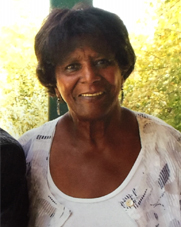
Nancy Donnell Radcliff was born on October 30, 1931 in Helena, Montana. Raised in her grandparents’ house at 212 South Beattie, Mrs. Radcliff attended Helena’s public schools, graduating from Helena High in 1949. She moved to Seattle to attend nursing school after graduation, and still lives there. Her recollections discussed in her oral history interview with Alan Thompson include the house at 212 South Beattie, childhood experiences in the neighborhood, interactions with local clubs, including the Montana Federation of Colored Women’s Clubs, outings to meetings and picnics, and friendships with Helena families.
Mrs. Nancy Donnell Radcliff, interviewed by Alan Thompson, 3/8/2016(mp3)
Mrs. Nancy Donnell Radcliff, interview summary (pdf)
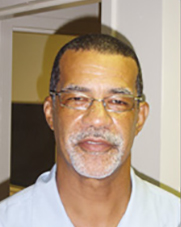
Jules Harrell, the second of Arthur Samuel Harrell and Mary Alice Trahan Harrell’s three children, was born on November 19, 1949. He grew up in the family home at 1076 North Ewing Street, Helena, MT, near his grandparents, aunts, and uncles. His grandfather Charles Harrell married Emma Bridgewater in Helena at the turn of the twentieth century. Both his immediate and extended families were longtime, active members of Helena’s African American community. Dr. Harrell attended local schools, including Carroll College, and went on to earn his Ph. D. in clinical psychology from the University of Illinois at Champaign in 1976. His major interests include general psychology, personality theories and research, basic psychophysiology, psychology of racism, and personality assessment and psychometrics. He is the author of Manichean Psychology: Racism and the Minds of People of African Descent and has published in such journals as the Journal of Black Psychology and Ethnicity and Disease. He has been a professor of Psychology at Howard University for nearly 30 years.[1068 North Ewing]
Dr. Jules Harrell, interviewed by Alan Thompson, 6/20/2016 (mp3)
Dr. Jules Harrell, interview summary (pdf)
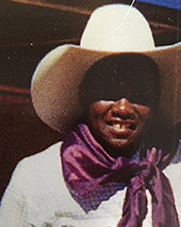
Born in Georgia, Jim Brooks grew up on a farm in the rural south, and from a young age dreamed of being a cowboy. At age 11, his family moved north, eventually settling in Morristown, Pennsylvania, where the Quaker community reinforced his love for horses. After graduating from Penn State, Brooks followed a friend to South Dakota and began his rodeo and cowboying career. His work took him to ranches throughout the West, from Arizona to Montana. He returns regularly to Montana to teach children how to rope, participate in rodeo shows, and visit his wife’s family.
Mr. Jim Brooks, interviewed by Alan Thompson, 6/30/2016 (mp3)
Mr. Jim Brooks, interview summary (pdf)
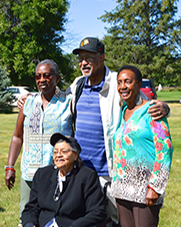
Ruth Parker McClendon and Wade Parker are two of seven siblings born to Agnes Mary Williams Parker (b. March 21, 1908 in Great Falls, MT) and Beatrice “Bea” Parker (b. April 1888 in Jackson County, Missouri). The Parker children, Jane (oldest), Dorothy, Ruth, Wade, Phyllis, Steven, and Alice were raised at 618 4th Avenue in Great Falls, MT. The Parker family home stood as a place of welcome for members of local African American community, and for those travelling through. Ruth Parker McClendon attended the University of Montana – Missoula, and later moved to California, where she was a teacher in the California high school educational system. Wade Parker attended George Williams College in Chicago, and has been recognized for his work in the Illinois Child Welfare and Foster Care system. Indeed, he was nominated for the “Ten Outstanding Men in Chicago Award” in 1969. While now far flung, the Parker family still remains close with each other and with their family home in Great Falls.
Mr. Wade Parker & Ruth Parker McClendon, interviewed by Alan Thompson, 7/15/2016 (mp3)
Mr. Wade Parker & Ruth Parker McClendon, interview summary (pdf)
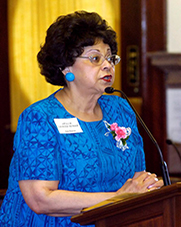
The daughter of Dr. Walter and Mrs. Alyce Duncan, Joan Duncan represents the third generation of the family to reside in Butte. She lived with her paretns at 711 West Broadway. By the time of her childhood during the 1940s and 1950s, the black community in Butte had dwindled considerably. Joan recalls that "for most of my life, the only black face I saw was the face I saw in the mirror in the morning." She credited the fine reputation of her parents, and the good people of Butte for positive experiences growing up. After a year at Syracuse University, she “missed good old Montana” and returned to finish her degree at Carroll College in Helena. Ms. Duncan held leadership positions in the Montana State Government, where she was Director of the Foster Grandparent Program, as well as a founding member and Bureau Chief of the Montana Women’s Bureau. She taught in the local high schools and hosted radio interview and local television programs. Joan also was an elected member of the Helena City Commission during the early 1980s. She continues to be an active and highly admired member of the Helena community.[see also715 West Park, Butte]
Ms. Joan Duncan, interviewed by Alan Thompson, 8/16/2016 (mp3)
Ms. Joan Duncan, interview summary (pdf)
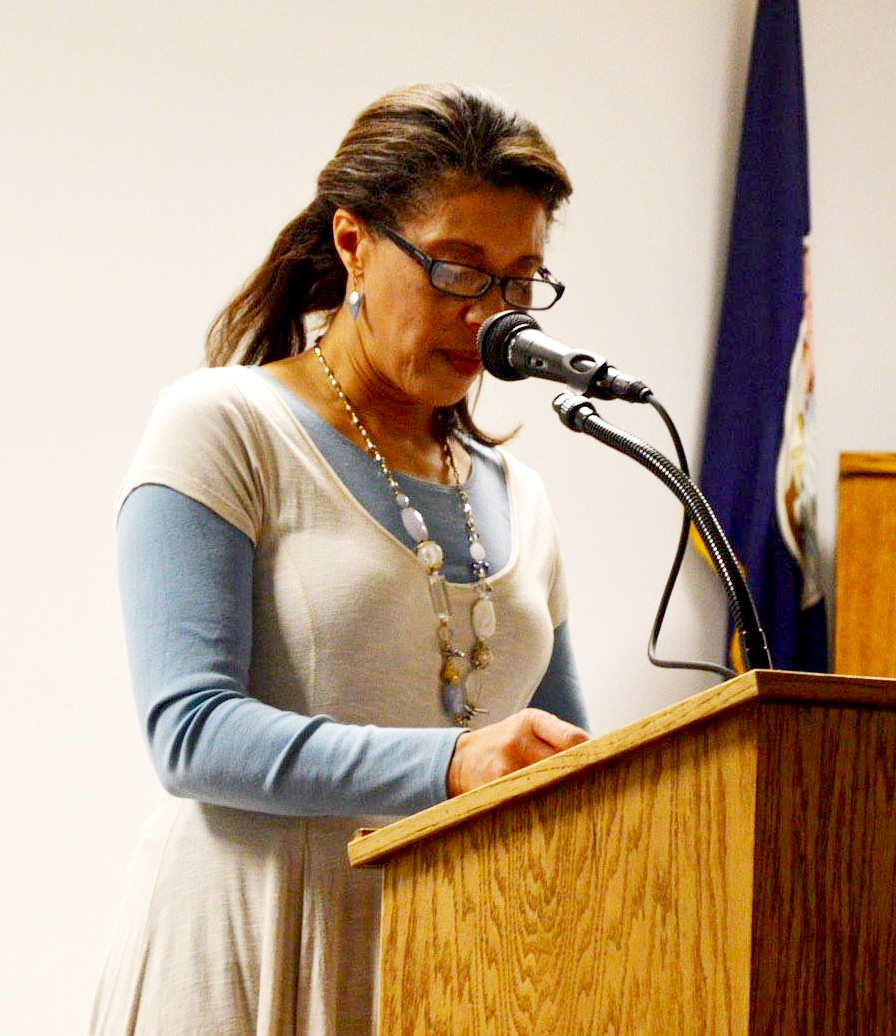
Kathy Reed, grew up in the South Side neighborhood in Great Falls. Her parents arrived in the city in 1958. Alabama natives Eddie Reed and his wife Eva (nee Hudson) had come to town to play the twilight of his professional baseball career for the Great Falls Electrics. Mr. Reed worked for The Paris of Montana, and eventually for Town and Ranch Furniture, where he remained employed until 1990. The family – which included six children – was active in the AME Church and numerous other African American organizations in the city and neighborhood. In this delightful interview, oldest daughter Kathy, who lives in the house she grew up in, discusses the history of the neighborhood and her family’s experiences in Great Falls. Ms. Reed graduated from Eastern Montana College (Billings) with a degree in education, and received her Masters in Education from Northern Montana College (Havre).[Taylor-Reed House; David and Katie Knott Residence]
Kathy L. Reed, interviewed by Alan Thompson, 4/11/2017 (mp3)
Kathy L. Reed, interview summary (pdf)
Additional oral histories are available at the Montana Historical Society Research Center (see full list on our MHS Collections page). They include:
Dr. Raymond Crump Howard. Helena, MT. Interview, April 24, 2010. [OH2298] MHS Research Center Archives. 1 CD (70 min.): digital + summary (7 pp).
In this interview Dr. Howard discusses family history in Montana; African Methodist Episcopal Church in Great Falls; attending school in Billings and experiencing racial slurs; living with his grandmother Edna Brown; getting his hair cut with the Helena High School basketball team because he was light skinned; leaving Montana because of the lack of jobs for African Americans; attending the University of Montana and being an athlete and experiencing racism during road games; the use of "colored, " "Negro, " "black," and "African American" terms in Montana; arrival of great grandfather James W. Crump in Montana after the Civil War; slavery and slave owners in Montana; and various occupations.
Mary Duncan Colley. Butte, MT. Interview, May 27, 1999. [OH 1812] MHS Research Center Archives. 2 audio tapes (1 hr., 40 min.), 4-page summary, 27-page transcript.
Colley discusses growing up in Butte, Mont., in the 1930s and 1940s as part of an African American family; her father's work as a podiatrist and as editor of New Age, an African American newspaper in Butte; her mother's volunteer work including membership in the Montana Federation of Colored Women's Clubs; her parents' hosting students of color from Montana School of Mines in Butte; how her community sheltered her from racism; differences between her experiences with race and that of her brothers and sisters; making transition from all-white culture of Butte to an all-black women's college; and her views on why the African American community dwindled in the years following World War II.
Lena Slausen. Interview, December 3, 1987. [OH 1044] Montana Historical Society Archives. 2 audio tapes (1 hr., 35 min).
Topics include African-American life in Butte; discrimination; her involvement in the Butte Women's Club; and her membership in the Pearl Club.
Walter Duncan, Perdita Duncan, Elmo Fortune, and William Fenter. Butte, MT. Interview, March 24, 1983. [OH483] Montana Historical Society Archives. 3 audio tapes (2 hr., 35 min.), 4-page summary.
Topics include the African American community in Butte from about 1910 to the 1940s; African American employment, social life, churches, and clubs in Butte; the Silver City Club; physicians; and prevalent white attitudes towards African Americans.
During the early 1970s, Quintard Taylor, with associates Charles Ramsay and John Dawkins, of the Washington State University Black Studies Department, interviewed black pioneers and their descendants throughout Washington, Oregon, Idaho, and Montana. These recordings are available online through the Washington State University Libraries. All these interviews are part of “Black Oral History Interviews, 1972-1974.” Accession No.: CT 2, Manuscripts, Archives, and Special Collections, Washington State University Libraries.
The Montana interviewees include:
Mr. and Mrs. A.E. Banks. Helena, MT. Interview, July 21, 1973. 2 audio tapes (82 minutes).
Mrs. Armeta Duncan. Butte, MT. Interview, April 4, 1974. 1 audio tape (60 minutes).
Learn about the Dr. John and Armeta Duncan Residence.
Dr. Walter Duncan. Butte, MT. Interview, April 3, 1974. 1 audio tape (50 minutes)
Learn about the Dr. Walter and Alyce Duncan Residence.
Mr. Raymond Johnson. Missoula, MT. Interview, March 3, 1974. 1 audio tape (20 minutes).
Learn about the William and Gertrude Johnson Residence (Raymond’s parents’ house).
Mr. William Knott. Great Falls, MT. Interview, May 2, 1974. 1 audio tape (40 minutes).
Learn about the David and Katie Knott Residence (William’s parents).
Ms. Ethel Monroe. Missoula, MT. Interview, April 5, 1974. 1 audio tape (60 minutes).
Mr. Thomas and Mrs. Ophelia Walker. Anaconda, MT. Interview, July 4, 1974. 1 audio tape (30 minutes).
